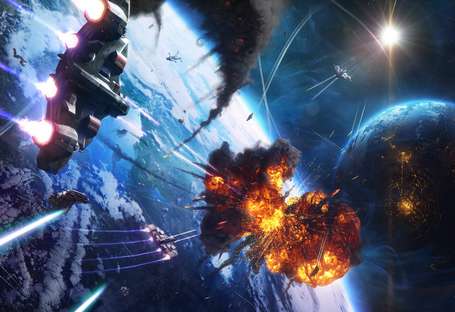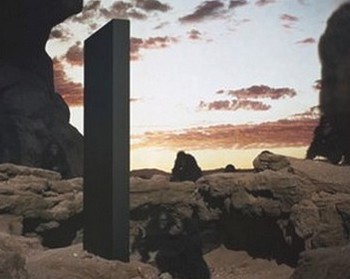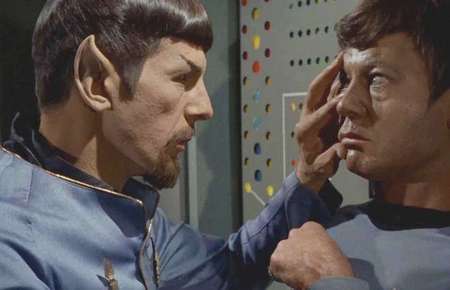
Why I Don't Read Much Science Fiction
by Sylvia Engdahl
Despite my interest in the future I have never been an avid science fiction fan, and it's hard for me to find sf novels that I enjoy. Here are some of the things that turn me away.
*
Strange as it may seem, although I have written ten science fiction novels I'm not a science fiction fan in the sense that term is generally used. I actually haven't read much science fiction, certainly not recently. And the reason I haven't is that my tastes don't match those of most people in the field. This is also why my own novels have never been acceptable to mass-market science fiction publishers--I write the kind of book I like to read, as most authors do, and I don't like to read the same kind of story as the majority of fans.
One reason is that I'm not really interested in action scenes such as space battles, nor do I care about the technical details of future science. Another is that I don't enjoy the kind of science fiction that aims to get as far from real life as possible just for the sake of difference. I prefer stories focused on the concerns and feelings of human beings--and on what we may have in common with beings of other worlds--rather than wild imagnings about alien species wholly unlike anything we know. The biggest problem I have in finding science fiction I like, however, is that so much of it is based on themes that conflict with my conception of the universe.
I can put up with a lot that would cause some people to turn away from a novel. I don't mind if the science isn't accurate--for example, starships that defy the laws of physics as we know them, or details of technology wrong where only a reader knowledgeable about the subject would notice. It's okay if the characters speak and act like people of today; though we know our culture will change; we don't know how it will change, so it can't be portrayed realistically in any case. Small anachronisms sometimes do jar me, but I can overlook them if the main theme of the book is valid. And though I dislike graphic violence, explicit sex, and foul language, I can tolerate them where they are germane to the story rather than gratuitous.
But there are some things that rule out a book if I'm choosing something to read for entertainment--themes that are so far removed from my underlying beliefs about the human condition that they destroy any pleasure I might take in the story. Unfortunately, they are very common themes, which leaves me with little to read.
Before listing these themes, I should make plain that I'm not talking about literary quality here. There are novels of high quality based on many of them, and I'm not saying these don't have value. It does disturb me when an author uses such themes merely to sell books rather than from honest conviction, but whether that has been done in a particular book is not for me to judge. I'm simply explaining that for recreational reading I choose books I hope to enjoy, and I don't enjoy fiction that conflicts with my beliefs about the nature of humans and our relation to the universe. That said, here are the theme I avoid.

There was so much that was good in 2001 that I liked it despite the premise that aliens control evolution, but anywhere else that's too far from my beliefs about reality.
1. War with aliens. This projection of the past into the future is wholly anachronistic. Any aliens technologically advanced enough to undertake an interstellar war or invasion will have matured far beyond the stage of wanting to do so, just as we ourselves will have. Though there might be individual power-seekers among them, they'd be unable to attract a following. And aliens with starships will have no need to fight over resources, as in space there are plenty to go around. For more detail about my thoughts on this, see my essay "Why There Will Never Be an Interstellar War" in From This Green Earth: Essays on Looking Outward.
2. Aliens who play God. I can't give a definitive reason why I don't believe advanced aliens take it upon themselves to teach or admonish less highly evolved ones, since after all, we don't really know anything about the psychology of aliens. But this has been one of my core beliefs since as far back as I can remember, as readers of my novels know. I wouldn't go so far as to reject films like 2001, which had enough more in it that I liked to compensate. I found 2010 harder to swallow. And I disliked episodes of Star Trek in which the nominal non-interfere policy seemed to exist only so that Captain Kirk could violate it. (Incidentally, the idea that aliens haven't arrived on Earth because of such a policy on their part is now sometimes called the Star Trek hypothesis and I am sometimes assumed to have derived it from Star Trek, which irritates me since I developed that policy in an early draft of Enchantress from the Stars back in 1957.)
3. Aliens with grotesque shapes that couldn't possibly give them the capabilities they are presumed to have. Of course aliens aren't just like us. Personally I prefer to think of them as more less human in form because we don't know what they actually look like and if they're going to be portrayed unrealistically it might as well be in a way that makes it easy for readers to identify with the characters. But I can accept other conceptions of them as long as their anatomy matches their actions. If it doesn't, the story is just as fantastic as children's stories about talking animals.
4. Humans viewed as inherently inferior to aliens (as distinguished from less advanced) or as a danger to the galaxy that should be eliminated. This applies both ways--no aliens are inherently inferior either, nor are some innately more aggressive than others. There aren't any inferior races of intelligent beings, only immature ones. Hopefully the very concept of racism will die out in our culture long before it could affect interstellar relationships, but I don't think it's good to perpetuate it by applying it either to aliens or to ourselves as a species.
I liked the portrayal of the aliens in Avatar, but the premise that humans of the distant future would colonize and devastate an inhabited planet is just not believable.
5. Humans trying to take over inhabited alien worlds. A story in which specific villains do so is okay, as long as it isn't implied that it's endorsed by Earth's authorities or that it's "human nature" to steal territory from others. Again, this is an anachronistic idea. The fact that it happened on Earth in past centuries does not mean that it could happen as far in the future as when we have starships--no authority on Earth would condone it even now. (Yes, a starfaring race does it in my own novel Enchantress from the Stars, but that is intentionally based on 20th-century mythology about space explorers, just as the portion of the book dealing with dragon-slaying is based on medieval mythology; it's not meant to be a realistic view of the future.) Human evolution involves progress on all fronts. We don't behave like our remote ancestors and our descendants won't be behave as we did in the relatively recent past.
6. Conscious AI. This theme appears more and more often and I cringe when I encounter it, as it's the antithesis of everything I believe about the nature of human (or alien) beings. There seems to be a strong psychological tendency for people to personify inanimate things, which I have never shared. Now people even personify computers. I love computers and couldn't live without mine, but I turned Cortana off the day I got it. Even a semblance of conscious AI depends on the supposition that minds are nothing more than physical brains--the fundamental tenet of materialism. See my essays "Robots Will Never Replace Humans" and "The Roots of Disbelief in Human Mind Powers."
7. Human consciousness uploaded to computers or, even more impossibly, electronically transmitted to other worlds. This notion reduces minds to mere software. It would be laughable if it were not that some scientists take it seriously. The transporter popularized by Star Trek was imagined so that the producers wouldn't have to spend money on sets showing landers, which was a reasonable excuse for the acceptance of such a concept. I can think of no other.
8. Cyborgs shown as normal and/or as superior to humans, Neurotechnology is a good thing when it restores normal functioning to disabled people, but I find the idea of altering our bodies' natural design dehumanizing and even dangerous. Just as the science of genomics is discovering that individual differences are far more complex and less easily modified than we thought, future science may learn that there are good reasons why evolution made us the way we are.
9. Physical (or electronic) immortality. If such a thing were possible, it would invalidate everything we know about life and about evolution. This is a matter not of technology, but of basic concepts of what it means to be alive. Change, not stasis, underlies all aspects of nature. See my essay "In Defense of Natural Death."

I don't beiieve telepathy is a capability unique to a particular species such as the Vulcans. If it exists, it's a universal power of the mind latent in all living beings.
10. Psi powers viewed as unique to a particular alien species, or as a freak mutation. If such powers exist, as I believe they do in both humans and animals, then they are latent in all sentient beings. Some individuals are more talented than others in using them, but they aren't just a chance genetic characteristic like skin color. They are a fundamental aspect of the interface between the material and nonmaterial. The degree of their development varies; in my opinion, conscious control of them increases as evolution progresses.
11. Advanced aliens who have intentionally abandoned technology. Considering the technological developments I've listed as unacceptable to me, it might be thought that I'm opposed to high technology in general. I'm not. Technology and mind powers are equally essential to the advancement and survival of any alien species, as they are to ours. A species that abandoned a significant portion of its technology would not only stop evolving but would lose the accumulated knowledge that enabled it to advance, and sooner or later it would die out. A story about the process of abandoning it, or the loss of it through some disaster, would be a tragedy; and I'm rarely in the mood for tragedy.
12. Advanced aliens who don't have space travel. If advanced means more advanced than we are right now, this in an impossibility. No technologically-progressive species can survive indefinitely confined to a single planet. If it tried to, it would either die out relatively quickly or, if it managed through totalitarian government to control its population and use of resources, it would eventually explode into violence and destroy itself along with its environment. In neither scenario could it be considered "advanced" very long.
13. An implication that humankind is sinful because the environment on Earth is changing. In the first place, I believe more changes are due to other natural processes than is generally recognized; we are not as powerful as we think. But where human activity does contribute to environmental change, it's because we do what is natural for our species to do: from prehistoric times onward, we have survived by altering our environment though technology. That is what caused us to become an exceptionally successful species in evolutionary terms, and in no sense are we blameworthy. All environments change. When ours changes for the worse it's a sign not that we are at fault for acting naturally, but that we have outgrown it and, like other species in that situation, we need to expand to a new ecological niche--in our case, space. Species that fail to adapt to changing environments or expand to new ones die out; that is a basic principle of evolution, and I believe it applies to alien worlds as well as our own.
14. A pessimistic or misanthropic view of humankind's long-term future. I don't like doomsaying and I don't think it's realistic, Barring some apocalyptic disaster, I believe we will continue to evolve and progress. The only disaster stories I like are those that focus on the indestructible quality of the human spirit and the conviction that we will recover from whatever losses we may experience.
15. Unlikeable or deeply flawed protagonists. I can't enjoy a novel unless the main protagonist is basically admirable. He or she will have faults, of course, and will make mistakes; but on the whole it must be someone I might like to know, and with whose feelings I can identify. Most people, and presumably most aliens, are fundamentally good. They do the best they can in the circumstances in which they are placed. To suggest otherwise by featuring exceptions distorts readers' view of the future.
Obviously, if I don't enjoy fiction with any of the above themes my "to be read" list is rather short. Normally I read mostly nonfiction. But if anyone has suggetions for novels I might like, I welcome them.
Copyright 2020 by Sylvia Engdahl
All rights reserved.
This essay is included in my ebook The Future of Being Human and Other Essays and in my book Selected Essays on Enchantress from the Stars and More.